Good Life with Books (December 2020)
Pascal Lafine (December 2020)
Interview Archive

An interview with Issey Takahashi published on the website Good Life Books on December 24, 2020. Takahashi discusses how Rohan's beliefs inspired him and provides an insight into how he portrays his role as Rohan in the Thus Spoke Kishibe Rohan TV drama.
Interview
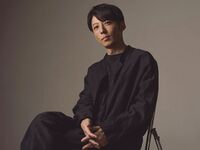
――Takahashi-san, you were already a fan of JoJo's Bizarre Adventure's Rohan Kishibe from the start. Weren't you surprised as well as happy when you received this offer?
I was really overjoyed. I never thought I would get to play a character I've loved since I was a teenager. Actually, it was a secret between me and my manager that I hoped to play Rohan Kishibe one day (laughs). Furthermore, I never imagined that I would be offered the role by director Kazutaka Watanabe, who I worked with on the previous historical drama Naotora: The Lady Warlord, so I was thrilled that something like this was possible.
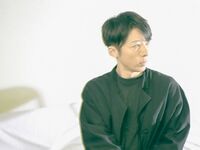
――Rohan is the type of person who is curious and pursues reality. What do you think is the appeal of Rohan, Takahashi-san?
Rohan is a particularly strong example of the kind of human beliefs that are portrayed in JoJo. Unlike the other characters, Rohan is a manga artist, just like Hirohiko Araki, the author of the manga. Characters with that kind of occupation are rare in JoJo, so in a way, I think he embodies what it means to be a manga artist in a very concrete way. When I first read JoJo as a teenager, he was the character who encouraged me to be so particular about my work, and to be so biased. That's the most appealing part.
――How did you create your own image of Rohan, the quirky manga artist, and the balance with your partner, the editor Kyoka Izumi?
Regarding the energy and expression in my performance, I didn't consciously create them myself. I started by giving it my all, pushing it to my limits, and then adjusting afterward to find the right balance between going too far or not. I considered the on-set staff as the first viewers providing immediate feedback. Based on their reactions, I developed the dynamic interactions with my on-screen partner, Izumi, who has a buddy-like vibe.
――I think it's difficult to adapt the world of JoJo into live action, not just Rohan. During your role preparation, did you have any discussions with director Watanabe on how to faithfully reflect Araki-sensei's worldview or emphasize original elements from JoJo?
Actually, I generally don't discuss acting with any director. No matter how much we say "I will act like this" using words, it would all be for nothing if we start acting and are told "No, that's wrong." Reality is merely an accumulation of individual perspectives, and sharing a worldview through words is difficult. So, first and foremost, I believe actors should present their physicality. This time, I had absolute trust in director Watanabe, and I thought that if something wasn't working, he would tell me. So, I was able to approach it with an absolute sense of security.
Also, I thought it was important for me to create a character that both those who know Rohan and those who don't would be satisfied with. As an actor, I focused on my lines and movements, asking myself, "How persuasive can I be? How much would make sense?"
――Personally, I’m really looking forward to seeing how the corn scene in the “Millionaire Village” will be visualized.
As you mentioned, the corn scene in the manga is very dramatic, exciting, and active. Moreover, Ikkyu, the guide of the Millionaire Village, is an otherworldly existence serving the Mountain Gods. However, in the drama, Fuga Shibazaki, who plays Ikkyu, is so cute that it looks like an adult is cornering and making a child cry (laughs). But I think that the delightful severity of it well demonstrates that Rohan doesn't see children as children and treats all people as equals, as subjects for his manga.
The confrontation between people based on their abilities approaches with a certain rawness and deformation. Through the live action adaptations of "Millionaire Village", "Kushagara", and "D.N.A", I think that the characters' restrained, internal emotional turmoil is dynamically expressed.
――I love the exchange of "We'll poach them" and "That's why I'm interested" in the original work Poaching Seashore. Araki-sensei even said that he drew the story because he wanted to include that part. In his comment, he said, "Rohan might cross the boundaries of the rules of modern society for the sake of something more important, but he never forgets to pay respect to tradition and history." Do you have any rules or aesthetics in your acting, Takahashi-san?
I make it a point not to show any signs of my "hard work." I'm not good at being asked, "What part did you work the hardest in?" Working hard is a given, and as a professional doing this job, I feel it's somehow off to reinforce it with words like "I tried hard." Nowadays, we're in an era where everything is about sharing, but I always have this discomfort, as if revealing the secret behind a magic trick. In the end, I think it's all about how much people feel from just watching the performance, and that's what matters most.
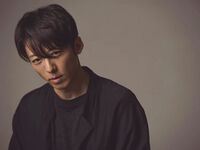
――There may be many people who are introduced to the world of JoJo for the first time through you, Takahashi-san. Can you share how both hardcore JoJo fans and beginners can enjoy this show?
If I mention specific highlights, people may just focus on those, so I'll keep it a secret (laughs). However, for those who have read the manga, I think they'll be able to recognize moments like "Ah, they brought out that pose from this volume, this story, and this scene!" So I'd like them to look for those moments. The original work's expressive language is also interesting, so I hope viewers can immerse themselves in the story by focusing on the vividness of the words spoken by actual people.
By the way, the word "Stand", which is familiar to JoJo fans, is not used at all in the drama. We've instead used words like "ability," "gift," and "something received," so I think it's easier for first-time viewers to understand.
This drama doesn't have action-packed scenes or dynamic physical entertainment. I believe it's a work that explores "How dramatic and exciting can the internal events be?" and "How much can we bring the inner aspects to life?" Nowadays, I feel that there are many stories that are easy to follow and characters whose emotions are easy to understand. That's not a bad thing, but I think our approach is different. Instead of rejecting something foreign, it's good to have the flexibility to enjoy it. I'd be happy if people can enjoy the strangeness, discomfort, and bizarre feelings in this work.
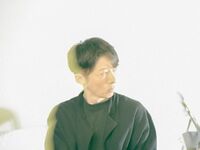
――You've appeared in many works based on manga before. Is there anything you keep in mind while acting?
When adapting a manga into a film or drama, the premise is that many people have seen the character before. However, the way each person perceives the same character can vary subtly due to their individual perspectives. Of course, I want to get as close as possible to the character's movements, visuals, and descriptions, and I'll put in the effort to do so, but when it comes to actually acting, I don't feel any pressure or make a conscious effort to keep something in mind.
I don't really trust forms that start with emotions. I think that the emotions that come from the form are actually more realistic. So, I believe that more than half of a character is created by their form. We had numerous meetings with director Watanabe and character design supervisor, Isao Tsuge, to finalize Rohan's visuals. At that point, I felt that the foundation had solidified.
――I think both JoJo fans and Takahashi-san fans are curious about this: are there any characters other than Rohan that you would like to play in the future? Also, this time it's a spin-off of Part 4, but which JoJo part do you prefer?
I don't have any other characters I'd like to be other than Rohan (laughs). I really like Part 4's Diamond is Unbreakable, but I also find the philosophy of Part 7's Steel Ball Run amazing. I can enjoy the boyish aspects of JoJo as well. However... I can't let go of Part 2's Battle Tendency either.
――It's difficult to choose, isn't it (laughs)? JoJo is also filled with music references, such as "Red Hot Chili Pepper" and "The Hand". You have also sung theme songs for dramas like Quartet and Tokyo Bachelors. How does music influence your acting?
Basically, I'm the type who can't live without music in my life, so it's like the Tower Records slogan (NO MUSIC, NO LIFE.) (laughs). Recently I've been re-listening to some of my old favorites, like XTC.
――So you like New Wave!
When I was in elementary school, I saw XTC's "Dear God" music video on MTV and thought it was incredibly cool. I was in the US for work at the time, so I dashed to Tower Records in New York to buy it. In the memorable music video, frontman Andy Partridge, dressed as a pastor, shakes a tree with many people straddling it by hitting it with a hammer, causing them to fall off. Andy was wearing round sunglasses, so I still wear round sunglasses to this day (laughs).
――Do you listen to music while reading scripts?
I try not to let the bias of music influence me when I'm putting in lines. However, I do play music as soon as I say "I'm done!" (laughs).
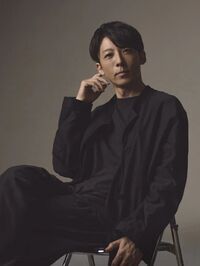
――It's been a quarter-century since you played Seiji Amasawa in the Studio Ghibli film Whisper of the Heart, and 2020 has turned into an unbelievable world. Nevertheless, when I saw your latest work, Wife of a Spy, on the big screen in theaters, I was truly moved by the greatness of cinema. I think living in the world of acting requires great inner strength. If you've learned something important from JoJo and Rohan that helps you in life, I'd like to hear about it.
Thank you very much. I felt really happy when I saw so many people in the audience from the podium at the stage greeting of Wife of a Spy.
Like Rohan, I think it's very important to first know the norms, rules, and patterns. Knowing that, how do we go through the process of "preserving, breaking, and detaching"? Especially in our intangible profession of expression, which doesn't require licenses or qualifications, we can't break or arrange things without first learning a certain form. Although I think I'm past the age of imitation, I believe that humans begin with imitation. We need to internalize things and make it our own. I think it's important to consider whether what you've internalized and made your own is truly necessary for you.
Trying an approach that is completely opposite to your own thinking might be one way to go about it. So if you see me in an article saying, "I worked hard in this part of my acting!" in the future, please think that I am trying the opposite approach (laughs). There must be things that can't be seen unless we look at them from the opposite perspective, so I might be constantly experimenting with that.
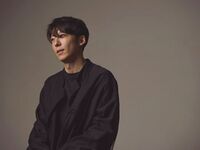
――I'm looking forward to seeing the contrary Takahashi-san (laughs). Finally, since "Good Life with Books" is a book website, please tell us what your all-time favorite books and recent recommendations are, apart from JoJo?
I love the stories written by Takehiro Ueda. I can really empathize with his attitude of focusing on one thing. From his debut work Sun/Planet to his latest work Q, the themes are the same, even if the works and forms are different. He stubbornly depicts the limits of humanity as war and where humanity ultimately ends up. I can't get enough of his relentless pursuit of a single point.
I also like Yoko Tawada's The Last Children of Tokyo. It's a novel published in 2014, but it seems to embody what would happen if we went beyond our current situation. It's a story about a Japan that has closed itself off to the outside world in the near future and how humans will evolve from there. It's interesting, so please give it a try.
[Translated by LocacacaFarmer and Vish]

――高橋さんはもともと『ジョジョの奇妙な冒険』の岸辺露伴ファンとのこと。今回のオファーが来て、嬉しさとともにびっくりしたのではないですか?
本当に喜びでした。まさか10代の頃から好きだったキャラクターを、自分が演じさせていただけるとは思っていなかったので。実は「いつか岸辺露伴がやれたらいいね」というのは、僕とマネージャーさんだけの秘密だったんです(笑)。しかも以前に大河ドラマ「おんな城主 直虎」でご一緒した演出の渡辺一貴さんからお話をいただけるなんて想像していなかったので、こんなことがあるんだと感動しました。

――露伴は好奇心旺盛でリアリティを追究するタイプですよね。高橋さんが思う露伴の魅力とは。
ジョジョを通して描かれているそれぞれの人間の信念のようなものが、露伴は特に強く出ているところでしょうか。というのも露伴は他のキャラクターたちと違って、原作者の荒木飛呂彦先生と同じ漫画家という、職業人なんです。そういう職業を持っている登場人物はジョジョのなかでも稀なので、ある意味すごく具体的に、漫画家とはなんたるかということを体現しているように思います。僕も初めて読んだ10代の頃、仕事に対して「ここまでこだわっていいんだ」「ここまで偏ってしまってもいいのかもしれない」という後押しをしてもらったキャラクターでもありました。そこが一番の魅力です。
――クセの強い漫画家・露伴を自身に落とし込む際の塩梅や相棒の担当編集者・泉京香とのバランスなど、高橋さん流の露伴像はどうやって作り上げていきましたか?
僕はどこまでやっていいのかというエネルギーの出し方や表出のさせ方は、自分では作っていないんです。まずは全力で出してみる。自分ができる限界まで一回出してみて、そのあとにやりすぎかそうじゃないか微調整をしていく感じでした。現場のスタッフの方々は一番最初に見てくれる間近な視聴者だと思うので、その方々のリアクションを見ながら、バディ感のある泉くんとの掛け合いも形作っていきました。
――露伴に限らず、ジョジョの世界は実写化しづらいと思うんですね。荒木先生の世界観を忠実に反映させよう、あるいはオリジナル要素を強く打ち出していこうなど、役作りのうえで渡辺さんとのディスカッションはされたんですか?
僕は基本的に、どの演出の方ともお芝居の話をしないんです。いくら言葉で「こう演じます」と言ったところで、いざお芝居をしてみて「違う」と言われたらそれまでなので。現実なんてそれぞれの主観の積み重ねでしかないですし、言葉で世界観の共有をすることは難しいことだと感じています。だからまず俳優は、自分の肉体をもって提示するべきだと思っているんです。今回は演出の渡辺さんが非常に信頼できる方でもありましたし、ダメだったらダメと言ってくださると思っていましたから、絶対的な安心感を持って臨むことができました。
また、露伴を知っている人も知らない人も、多くの人たちが納得してくださるようなキャラクターを作っていくことが自分にとって大事なことだと思ったので、俳優として自分の台詞や動きで「どれだけ説得力を持たせられるか? どれだけ腑に落とせるか?」ということに注力していました。
――個人的には「富豪村」のトウモロコシのシーンがどのように映像化されるのかすごく楽しみです。
おっしゃる通りトウモロコシのシーンは、漫画だと非常にドラマティックにエキサイティングに、アクティブに描かれています。しかも富豪村の案内役である一究は、山の神々に仕えている異形の存在。ただドラマでは、一究を演じた柴崎楓雅くんがものすごくかわいくて、まるで大人が子供を追い詰めて泣かしているようにしか見えないんです(笑)。でもその痛快な厳しさには、露伴が子供を子供として見ず、自分の漫画の対象としてすべての人間を対等に扱っているということがよく表れていると思います。
人と人がある能力をもとに対峙するさまが、ある種の生々しさとデフォルメさを持って迫ってくる。今回実写化される「富豪村」「くしゃがら」「D.N.A」を通して、抑制された、内側の心の動きがダイナミックに出せているんじゃないかなと思います。
――原作の「密漁海岸」での「密漁をします」「だから気に入った」のやり取りが大好きで、荒木先生もそのくだりがやりたいがために描いたとまで言っています。また一言コメントには「露伴は現代社会のルールの境界は、より大切なもののために越えていくかもしれない。でも伝統や歴史には敬意を払うのを忘れない」とあります。高橋さんも演技するうえでのルールや美学はありますか?
「がんばった」という形跡を見せないことです。僕、「がんばったところはどこですか?」と聞かれるのが苦手なんです。がんばるのは当然ですし、それを仕事にしている以上はプロなので、「がんばった」と言葉で補強するのはなんだか違う気がして。今はなんでも共有の時代になっていますけれど、手品の種明かしをしているようで、それに対する違和感も常日頃から持っています。やっぱり芝居だけ見てもらって、どれだけその芝居に感じるものを持ってくださったかということがすべてだと思っています。

――今回、高橋さんきっかけでジョジョの世界に初めて触れる方も多いと思うんです。筋金入りのジョジョファンはもちろん、初心者に向けた楽しみ方を教えていただけませんか。
見どころを言ってしまうとそこばかり注目されてしまうので、あえて内緒にしておきます(笑)。けれど、漫画を読んでいる方々なら「この巻の、この話の、この時の動きをここで出してきたか!」というのがわかると思うので探してみてほしいです。原作の言葉の使い方もおもしろいので、実際の人間が発語した時の生々しさを取っ掛かりにして、物語に没入していってくださったら。
ちなみにジョジョファンならおなじみの「スタンド」という言葉は、ドラマでは一切使っていないんです。「能力、いただいたもの、ギフト」という言葉に落とし込んでいるので、初見の方々もとっつきやすいと思っています。
今回のドラマは、バリバリのアクションがあるわけではないし、動的で肉体的なエンターテインメントというわけでもない。「内側で起こっていることがどれだけドラマティックでエキサイティングに見えるか?」「どれだけ内的なものを躍動させられるか?」という作品だと思うんです。今の時代は、物語を追いやすく、登場人物の心情がわかりやすい作品が多いと感じます。それは決して悪いことではないけれど、そういったものとは違うアプローチの作品ではあると思っています。異物だから排除するのではなくて、それを楽しむ余裕があってもいいんじゃないかなと。そういう異物感や違和感、それこそ奇妙な感じを楽しんでもらえたら嬉しいです。

――これまでも漫画原作の作品には多数出演されていますが、演じる際に心がけていることはありますか?
漫画原作を映像化するということは、前提としてそのキャラクターを見たことがある人が大勢いるということです。ただ、同じキャラクターでもそれぞれの主観によって微妙に違って映っているはずで。もちろんそのキャラクターの動き、ビジュアル、描写にできる限り近づけたいしその努力はしますが、実際にお芝居する時は、自分のなかで気負いを感じたりこれを心がけようと意識したりすることはありません。
僕は、感情から始まる形をあまり信用していないんです。形から入る感情のほうが、実は真に迫っているんじゃないかと思っていて。なので、形によって半分以上キャラクターはできあがっていると考えています。露伴のビジュアルも、演出の渡辺さんや人物デザイン監修の柘植(伊佐夫)さんなどと何度も打ち合わせを重ねたうえで決めていきました。その時点で土壌は固まっていると感じていました。
――ジョジョファンも高橋さんファンも気になるところだと思うのですが、今後、露伴以外でやりたいキャラは? また今回は4部のスピンオフですが、高橋さんは何部派ですか?
露伴以外になりたいキャラは、ないです(笑)。やっぱり4部の「ダイヤモンドは砕けない」が好きですが、7部の「スティール・ボール・ラン」の哲学性もすごいなと思います。ジョジョの少年的なところも楽しめますし。けれど……、2部の「戦闘潮流」も捨てがたいです。
――なかなか選べませんよね(笑)。ジョジョは「レッド・ホット・チリ・ペッパー」や「ザ・ハンド」など音楽ネタも散りばめられています。高橋さん自身も「カルテット」や「東京独身男子」といったドラマで主題歌を歌われています。音楽は演技にどう影響を与えていますか?
基本的に生活のなかに音楽がないと無理なタイプなので、タワーレコードのスローガン(NO MUSIC, NO LIFE.)と同じです(笑)。最近はXTCなど、昔から好きだったものを聴き直しています。
――ニューウェーブがお好きなんですね!
小学生の時にMTVでXTCの「Dear God」のPVが流れていたのを見て、めちゃめちゃかっこいいと思ったんです。当時仕事でアメリカにいたので、ダッシュでニューヨークのタワーレコードに買いに行きました。フロントマンのアンディ・パートリッジが牧師の格好をしていて、たくさんの人がまたがっている木をトンカチで叩いて揺さぶって、彼らを落としていくという印象的なPVなんですが、そのなかでアンディが丸メガネのサングラスをしていたので、僕もいまだに丸メガネのサングラスをかけています(笑)。
――台本を読んでいる時も音楽を聴きつつやる感じですか?
台詞を入れている時は音楽のバイアスは入れないようにしています。ただ、「終わった!」という瞬間には音楽をかけています(笑)。

――ジブリ映画「耳をすませば」の天沢聖司くん役から四半世紀、2020年はとんでもない世界になってしまいました。それでも高橋さんの最新作「スパイの妻」を劇場の大スクリーンで観たときに、やっぱり映画は素晴らしいと本当に感動しました。演技の世界で生きていくということは、自分を強く持ち続けなければ大変なことだと思うんです。そこでジョジョや露伴から生きるうえで学んだ大切なことがあれば、お聞きしたいです。
ありがとうございます。「スパイの妻」は、僕も舞台挨拶で壇上から客席のたくさんのお客様を見た時に、本当に嬉しい気持ちになりました。
僕も露伴と同じように、まず規範やルールや型を知ることはとても大事にしたいと思っています。それをわかったうえで、どう「守・破・離」していくか。僕らのように免許も資格もいらない、表現という無形な仕事だからなおさら、ある形式を学んでおかないと崩していくこともアレンジすることもできない。もう僕は模倣の年齢ではないと思っているんですけれど、やっぱり人間は模倣から始まるんじゃないかと思うんです。それを自分の腑に落としていく。落として自分のものにしていった時に、それは果たして自分にとって本当に必要なものなのだろうかと考えることが大事だと思っています。
自分と正反対の思考やアプローチを無理やりしてみるというのもひとつの手かもしれません。だからこの先、僕がなにかの記事で「お芝居でがんばったところはここです!」と言っていたら、正反対のアプローチをしているんだなと思ってください(笑)。逆の視点から見ないと出てこないものはあるはずなので、そういうことを常に実験しているのかもしれないです。

――あまのじゃくな高橋さんを目撃するのを楽しみにしています(笑)。最後に、好書好日は本のサイトということで、ジョジョ以外のオールタイムベストと最近のおすすめを教えてください。
僕は上田岳弘さんが書く物語が大好きなんです。ひとつのことを突き詰めている姿勢に、すごく共感できると言いますか。処女作の『太陽・惑星』から最新作の『キュー』まで、作品が違っても形を変えても、テーマ性は同じなんです。戦争というものを人類の限界として、その人類が最終的にどういうところに行き着くのかということを頑なに描かれている。ずっと一点突破で穿ち続けようとしているのがたまりません。
あとは多和田葉子さんの『献灯使』も好きです。2014年に出された小説なんですが、まるで今の状況から先に行ったらこうなりますよというのを具現化しているようです。近未来に鎖国した日本の話で、そこから人間がどうなっていくかを描いています。おもしろいのでぜひ。
